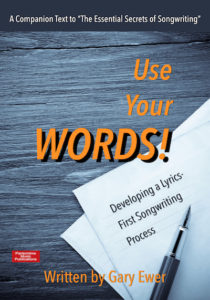I don’t know of a single composer of music who hasn’t gone through a bit of a creative block from time to time. We all like to think we’re invincible, but there are many causes of writer’s block, and so mild to medium blocks are relatively common.
But for those of you who are dealing with a longterm inability to write songs, it can be downright depressing. When writer’s block seems to be unsolvable, you’re left with the task of redefining who you are, and that’s difficult and unpleasant to go through.
 Starting songs by working out the chords can work well, but you’ve got to avoid some common pitfalls. Read “Writing a Song From a Chord Progression” to discover the best chords-first methods.
Starting songs by working out the chords can work well, but you’ve got to avoid some common pitfalls. Read “Writing a Song From a Chord Progression” to discover the best chords-first methods.
It’s hard to define when writer’s block goes from being mild to medium to severe, but my own personal definition relates to seasons: if you’re dealing with a block in December that actually started back in September, let’s say, you’re probably in the realm of a severe block.
Solving Songwriter’s Block
I believe any block is solvable, at least for 99% of composers of music. There’s a lot of pressure, guilt and even anger that comes about when a block happens, and those emotional responses make solving the block harder.
So the first step to solving it is to eliminate some well-known causes, the top three probably being:
- Exhaustion. You’re simply too tired.
- Distractions. You’re too busy, and you’re being pulled in too many directions at the same time.
- Preoccupation with personal circumstances. You’re caring for an ailing loved one over a long period of time, for example.
These ones are usually easy to detect. They may not be easy to solve, but at least you have the comfort of knowing that your block has an identifiable cause.
Assuming that the source of your own creative block isn’t one of the above, you’re left with the more uncomfortable problem of being unable to write, but not knowing exactly why.
Understanding the Principles
In my own research into this problem (which led to the writing of “Beating Songwriter’s Block: Jump-Start Your Words and Music“), I truly believe that a lack of understanding of the principles of good music composition is often the cause of most bouts of writer’s block.
That usually means that, with time and experience, creative blocks should become less frequent. But in the meantime, as you’re dealing with this longterm severe bout of writer’s block, what can you do?
Here are some suggestions for getting the creative juices working again:
- Create a writing schedule that has you writing for no more than 15 minutes per session. This kind of “start small” routine will reduce the pressure you feel to get something written.
- Write small snippets of songs, not entire ones. This is another great “start small” tactic. Instead of trying to write a full song, make it your aim to write:
- two lines of lyrics;
- one verse melody;
- one chorus melody;
- one rhythmic groove (chords with backing rhythms);
- etc…
- Make writing a regular feature of your day. You should try to write 5 days out of every 7, but keep those sessions short at first.
- Get creative with someone else’s song: reimagine hit songs in your own way. Take a song (“Hey Jude”, let’s say), and do up a reggae version. Or take Pharrell’s “Happy”, and redo it in a ballad waltz style. Getting creative with someone else’s song allows you to come up with new ideas without having to create your own melody and lyrics.
- Collaborate with another songwriter. This is one of the best ways to defeat writer’s block. You might have good ideas, with a temporary inability to pull those ideas together to form a good finished product. A collaboration puts two of you on the job, and you’ll feel every bit as creative.
 Written by Gary Ewer. Follow Gary on Twitter
Written by Gary Ewer. Follow Gary on Twitter
 Trying to discover the secrets to better song lyrics? This eBook, “Use Your Words!”, is being offered free with your purchase of “The Essential Secrets of Songwriting” 10-eBook Bundle. Read more.
Trying to discover the secrets to better song lyrics? This eBook, “Use Your Words!”, is being offered free with your purchase of “The Essential Secrets of Songwriting” 10-eBook Bundle. Read more.










